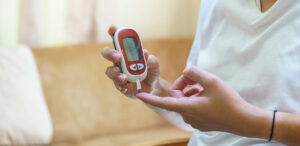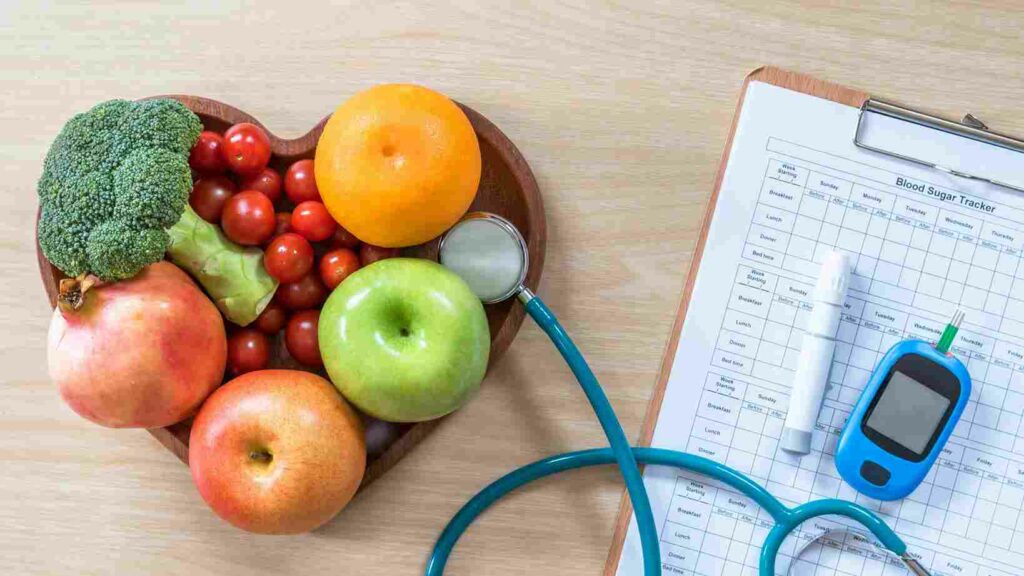Living with diabetes can be a challenging journey, but it’s essential to explore holistic and natural approaches that complement traditional treatments. While medical interventions play a crucial role, integrating lifestyle changes and embracing natural remedies can contribute significantly to managing diabetes effectively. In this blog, we’ll delve into the world of natural cures for diabetes, exploring various strategies that may empower individuals to take charge of their health and well-being.
Contents
Is It Possible To Reverse Diabetes?
 While there is no cure for diabetes, some individuals have experienced the reversal of their diabetes symptoms through significant lifestyle changes. Type 2 diabetes, in particular, is often closely linked to lifestyle factors such as diet, physical activity, and weight. Research suggests that adopting a healthier lifestyle can lead to improved blood sugar control and, in some cases, the partial or complete reversal of diabetes. Losing excess weight can enhance the body’s ability to use insulin effectively and improve overall metabolic function.
While there is no cure for diabetes, some individuals have experienced the reversal of their diabetes symptoms through significant lifestyle changes. Type 2 diabetes, in particular, is often closely linked to lifestyle factors such as diet, physical activity, and weight. Research suggests that adopting a healthier lifestyle can lead to improved blood sugar control and, in some cases, the partial or complete reversal of diabetes. Losing excess weight can enhance the body’s ability to use insulin effectively and improve overall metabolic function.
It’s important to note that the success of reversing diabetes varies from person to person. Hence, not everyone may achieve a complete reversal. Additionally, individuals with type 1 diabetes, which is an autoimmune condition, typically do not experience reversal through lifestyle changes alone. Nevertheless, the potential for diabetes reversal highlights the significance of proactive and sustainable lifestyle modifications in managing the condition and promoting overall health.
What Are The Effective Natural Cures For Diabetes?
While there isn’t a definitive “cure” for diabetes, several natural approaches have shown promise in managing the condition and improving overall well-being. It’s crucial to note that these strategies should complement, not replace, conventional medical treatments. Here are some effective natural cures for diabetes:
Healthy Eating Habits
Adopting a healthy and balanced diet is fundamental for individuals managing diabetes. Focus on consuming whole, nutrient-dense foods to regulate blood sugar levels. Incorporate a variety of colorful vegetables, fruits, lean proteins, and whole grains into your meals. Be mindful of carbohydrate intake and choose complex carbohydrates that have a slower impact on blood sugar. Portion control is key to preventing spikes in glucose levels. Additionally, consider spreading your meals throughout the day to maintain steady energy levels.
Regular Physical Activity
Engaging in regular exercise plays a crucial role in diabetes management by improving insulin sensitivity and assisting with weight control. Both aerobic exercises, such as brisk walking, jogging, or cycling, and strength training activities contribute to overall health. Aim for at least 150 minutes of moderate-intensity aerobic exercise per week, along with two or more days of strength training. However, it’s essential to tailor your exercise routine to your individual fitness level and health conditions. Always consult with your healthcare team before starting a new exercise regimen to ensure it aligns with your specific health requirements and goals.
Herbal Supplements
 Some individuals explore the potential benefits of herbal supplements in managing diabetes. For instance, cinnamon has shown promising effects on improving insulin sensitivity, while fenugreek may help lower blood sugar levels. Bitter melon is another herb that has been traditionally used to regulate glucose metabolism. It’s crucial to approach these supplements with caution and under the guidance of a healthcare professional, as they may interact with medications or have side effects. Dosages should be carefully monitored, and regular check-ups with your healthcare provider are recommended to assess their impact on your diabetes management plan.
Some individuals explore the potential benefits of herbal supplements in managing diabetes. For instance, cinnamon has shown promising effects on improving insulin sensitivity, while fenugreek may help lower blood sugar levels. Bitter melon is another herb that has been traditionally used to regulate glucose metabolism. It’s crucial to approach these supplements with caution and under the guidance of a healthcare professional, as they may interact with medications or have side effects. Dosages should be carefully monitored, and regular check-ups with your healthcare provider are recommended to assess their impact on your diabetes management plan.
Stress Management
Chronic stress can significantly impact blood sugar levels, making stress management a crucial aspect of diabetes care. Incorporating stress-reducing techniques into your daily routine, such as mindfulness meditation, deep breathing exercises, or yoga, can positively influence both your mental well-being and glucose control. Finding activities that promote relaxation and a sense of calm, whether it’s spending time in nature, listening to music, or engaging in hobbies, can contribute to an overall reduction in stress levels.
Adequate Sleep
Quality sleep is a crucial component of overall health, and its impact on diabetes management should not be underestimated. Research suggests that inadequate sleep can affect insulin sensitivity and glucose metabolism. Establishing a consistent sleep routine, including a regular bedtime and wake-up time, can contribute to better sleep hygiene. Create a comfortable sleep environment by minimizing light and noise, and consider limiting screen time before bedtime to promote relaxation. If sleep difficulties persist, it’s advisable to consult with a healthcare professional to address any underlying issues and explore strategies for improving sleep quality.
Maintaining a Healthy Weight
For individuals with diabetes, maintaining a healthy weight is often associated with improved insulin sensitivity and better blood sugar control. Even modest weight loss can have significant benefits. Focus on sustainable and realistic weight management strategies, such as adopting a balanced diet and engaging in regular physical activity. A healthcare provider or a registered dietitian can offer personalized guidance on setting achievable weight loss goals and implementing lifestyle changes that support long-term success. It’s essential to approach weight management as part of an overall strategy for diabetes care, emphasizing overall health and well-being.
Hydration
Proper hydration is essential for everyone, and individuals with diabetes can benefit from paying attention to their fluid intake. Water is the best choice for staying hydrated, as it contains no added sugars or calories. Adequate hydration helps support kidney function, which is crucial for individuals with diabetes. Limit the consumption of sugary drinks and beverages high in caffeine. Because they may affect blood sugar levels and contribute to dehydration. Developing a habit of carrying a reusable water bottle and sipping water throughout the day can be a simple yet effective way to ensure regular hydration.
Remember, individual responses to these natural approaches can vary. Thus, it’s crucial to work closely with your healthcare team to tailor a plan that meets your specific needs. Natural remedies should be viewed as supportive elements in an overall diabetes management strategy.
What Are The Benefits Of Natural Cures For Diabetes?
 Natural approaches to managing diabetes can offer several benefits that contribute to overall well-being. So, here’s an overview of the benefits of natural cures for diabetes:
Natural approaches to managing diabetes can offer several benefits that contribute to overall well-being. So, here’s an overview of the benefits of natural cures for diabetes:
Improved Blood Sugar Control
Adopting a natural approach to diabetes management, such as a balanced diet and regular exercise, can contribute to better blood sugar control. Whole foods, rich in nutrients and fiber, can have a positive impact on insulin sensitivity, helping to regulate glucose levels.
Enhanced Insulin Sensitivity
Lifestyle changes, including physical activity, can improve insulin sensitivity. Regular exercise helps the body use insulin more effectively, facilitating the transport of glucose into cells for energy. This can be particularly beneficial for individuals with insulin resistance, a common factor in Type 2 diabetes.
Reduced Dependency on Medications
Some individuals may experience a decrease in the need for diabetes medications or insulin when implementing natural approaches. Lifestyle changes can lead to improved blood sugar levels, potentially allowing for adjustments in medication under the guidance of healthcare professionals.
Cardiovascular Health
Natural remedies often focus on promoting heart-healthy habits, such as consuming a diet rich in fruits, vegetables, and lean proteins. These practices not only benefit blood sugar control but also support cardiovascular health, reducing the risk of complications associated with diabetes.
Increased Energy and Well-Being
A healthy lifestyle that includes proper nutrition, regular physical activity, and stress management can contribute to increased energy levels and an overall sense of well-being. This holistic approach addresses multiple aspects of health, promoting a positive and sustainable lifestyle.
Prevention of Complications
By managing blood sugar levels effectively, natural approaches may contribute to the prevention or delay of diabetes-related complications, such as cardiovascular issues, nerve damage, and kidney problems. This can significantly improve the long-term prognosis for individuals with diabetes.
Sustainable Lifestyle Habits
Natural cures often emphasize long-term lifestyle changes rather than short-term fixes. Establishing sustainable habits in diet, exercise, and stress management fosters a proactive and enduring approach to diabetes care, promoting lasting health benefits.
It’s essential to approach natural cures for diabetes in consultation with healthcare professionals. They can provide personalized guidance based on individual health needs and ensure a comprehensive and safe management plan.
Conclusion
In conclusion, managing diabetes through natural approaches involves making positive lifestyle changes that can significantly impact overall well-being. By adopting natural cures for diabetes, people may experience improved blood sugar control, enhanced insulin sensitivity, and a potential reduction in the need for medications. These holistic strategies not only contribute to better diabetes management but also support cardiovascular health and reduce the risk of complications.
It’s important to remember that while natural remedies can be beneficial, they should be part of a comprehensive plan that includes regular medical monitoring and consultation with healthcare professionals to ensure safety and effectiveness. Do you want to get rid of diabetes? Join our online diabetes treatment program and reverse Diabetes naturally through lifestyle changes such as a Personalized Diet plan, Exercise, Yoga, dieticians, and health coaches.

